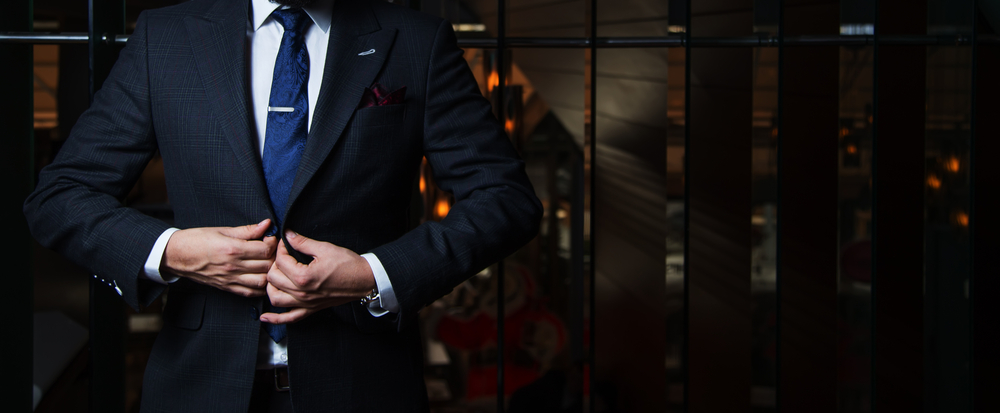Am I Sinful for Having a Favorite Attire Different to That of The Prophet (Allah bless him and give him peace)?
Shafi'i Fiqh
Answered by Shaykh Irshaad Sedick
Question
I prefer wearing shirts and trousers that fall above the ankle and enjoy wearing suits. However, I’m not fond of wearing thobes. Although I’m aware that white was the Prophet Muhammad’s (Allah bless him and give him peace) favorite color, I prefer colorful attire. This sometimes leads me to question whether I’m sinning by not dressing like the Prophet or missing out on the associated rewards. Additionally, I worry that this choice reflects a lack of love for the Prophet.
I seek clarification on whether I am genuinely being deprived of rewards for not adopting the Prophet’s clothing style. Furthermore, I would like to understand if Islam permits having a personal preference for clothing that differs from that of Prophet Muhammad (Allah bless him and give him peace).
Answer
In the Name of Allah, the Most Merciful and Compassionate. May Allah alleviate our difficulties and guide us to what pleases Him. Amin.
As long as your attire is not unlawful, there is no sin for preferring clothes different to the preferred attire of the Prophet (Allah bless him and give him peace), and Allah knows best.
The Function of Clothing
Allah (Most High) says: “O children of Adam! We have provided for you clothing to cover your nakedness and as an adornment. However, the best clothing is righteousness. This is one of Allah’s bounties, so perhaps you will be mindful.” [Quran, 7:26]
Regulations Concerning Clothing
The Prophet (Allah bless him and give him peace) prohibited men from wearing and sitting upon silk. [Bukhari]. He (Allah bless and give him peace) also prohibited men from wearing gold.
In addition, Islam prohibits men from wearing women’s attire and vice versa. The Messenger of Allah (Allah bless him and give him peace) cursed the man who wears women’s clothing and the woman who wears men’s clothing. [Abu Dawud and graded as authentic by Imam Nawawi in al-Majmu‘]
Based on the above, as long as the clothing covers your shameful parts, is not made up of prohibited material, and does not imitate the opposite gender, it is generally permissible to wear it, and Allah knows best.
Attire of The Prophet (Allah bless him and give him peace)
The non-ritual actions of the Prophet(Allah bless him and give him peace), like eating, drinking, [clothing], and sleeping, are considered religiously neutral (mubah). [Ibn al-Firkah, Sharh al-Waraqat].
There is technically no “Sunna clothing”; you will be rewarded for donning traditional clothing and not punished for leaving it unless verbally stated by the Prophet (Allah bless him and give him peace).
Guidance Within Flexibility
It’s essential to recognize that Islam, while guiding various aspects of life, also allows for personal preferences within the boundaries of halal (permissible) and haram (forbidden). Clothing choices, as long as they adhere to the principles of modesty and decency, fall within personal discretion. The Prophet Muhammad (Allah bless him and give him peace) emphasized modesty and cleanliness in attire but did not prescribe a specific dress code beyond that.
Islam strongly emphasizes intention (niyya) and the state of one’s heart. If your choice of clothing aligns with Islamic principles and your intention is pure, there is no inherent sin in expressing personal style. It is crucial to avoid judging others based on their attire and to foster an understanding that personal preferences in clothing do not necessarily indicate a lack of love or respect for the Prophet.
In conclusion, Islam allows flexibility in personal choices, including clothing, as long as these choices are within the bounds of decency and modesty. Remember that the essence of righteousness and piety lies in the heart and actions. As long as your clothing adheres to Islamic guidelines, you can embrace your personal style without fearing sin or spiritual deprivation. Allah knows best.
I pray this is of benefit and that Allah guides us all.
[Shaykh] Irshaad Sedick
Checked and Approved by Shaykh Faraz Rabbani
Shaykh Irshaad Sedick was raised in South Africa in a traditional Muslim family. He graduated from Dar al-Ulum al-Arabiyyah al-Islamiyyah in Strand, Western Cape, under the guidance of the late world-renowned scholar Shaykh Taha Karaan.
Shaykh Irshaad received Ijaza from many luminaries of the Islamic world, including Shaykh Taha Karaan, Mawlana Yusuf Karaan, and Mawlana Abdul Hafeez Makki, among others.
He is the author of the text “The Musnad of Ahmad ibn Hanbal: A Hujjah or not?” He has served as the Director of the Discover Islam Centre and Al Jeem Foundation. For the last five years till present, he has served as the Khatib of Masjid Ar-Rashideen, Mowbray, Cape Town.
Shaykh Irshaad has thirteen years of teaching experience at some of the leading Islamic institutes in Cape Town). He is currently building an Islamic online learning and media platform called ‘Isnad Academy’ and has completed his Master’s degree in the study of Islam at the University of Johannesburg. He has a keen interest in healthy living and fitness.
